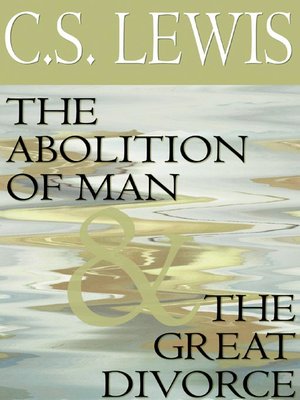
The authors of The Control of Language offered a new and rival approach to the Tao. This common approach to objective truth Lewis summarized as belief in “the Tao” (meaning “the way”).


Christians, Jews, Muslims, Buddhists, Zoroastrians, ancient pagans-all shared a view of life in which there were objective truths and values, and ethics which reflected those objective truths. Lewis perceived that the approach to life, ethics and values enshrined in the book constituted a major departure not just from Christianity, but from all previous approaches to life. (One sees the wisdom of the marketing editor in abbreviating the title.) Lewis was moved to offer these thoughts after reading the book The Control of Language, by two schoolmasters, Alec King and Martin Ketley. Its timely relevance for today seems at first sight unlikely, given its original and full title: “ The Abolition of Man: Reflections on Education with Special Reference to the Teaching of English in the Upper Forms of Schools”. In this brief essay I look a little more closely at the slim volume The Abolition of Man, for the book appears more timely today than ever before, and it calls many of us to united action who have seldom united before.
What is beyond dispute is that much of what Lewis (who died in 1963) predicted and feared has come to pass. Lewis would, of course, utterly dismiss any suggestion that he was a prophet, and I use the term here very loosely. (The other work is a short essay entitled, “Priestesses in the Church?”, written in 1948, well before his Anglican Communion began ordaining women to the priesthood in the 1970’s). Lewis’ status as a prophet could be argued from two of his works, one of which is The Abolition of Man, written as a pamphlet in 1943.


 0 kommentar(er)
0 kommentar(er)
